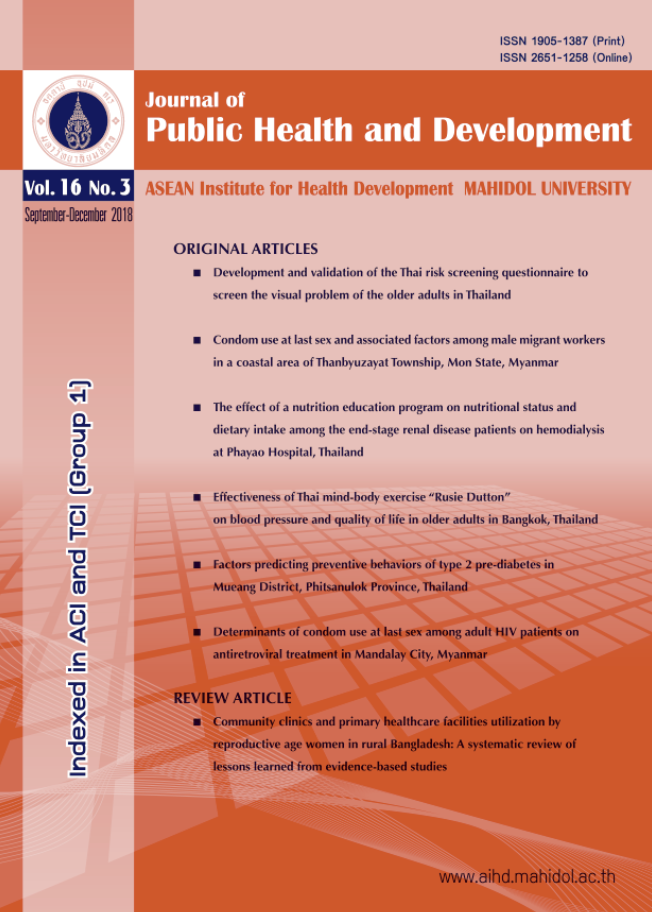Factors predicting preventive behaviors of type 2 pre-diabetes in Mueang District, Phitsanulok Province, Thailand
Main Article Content
Abstract
This research was to examine factors predicting preventive behaviors of type 2 pre - diabetes in Mueang District, Phitsanulok Province. A total of 430 participants who has not been diagnosed with diabetes and had fasting blood sugar between 100-125 mg/dl. A multi-stage sampling technique was used to recruit participants from 24 primary care units in Mueang District, Phitsanulok Province. Data were collected using a questionnaire with an overall Cronbach’s alpha coefficient of 0.82. Data were analyzed using descriptive statistics and stepwise multiple regression at significant level of 0.05.
The results showed that 56.0% were females. Most of them (78.1%) were married and, 48.4% aged 60 years and over with the mean of 56.97 years and S.D. of 10.49. The majority of them (41.6%) completed secondary school level. Most of the participants (44.0%), had their body mass index (BMI) between 23.00 - 24.99 with the mean of 23.68 and S.D. of 1.47. Most of all had diabetes knowledge, overall social support, self- efficacy, and preventive behaviors at good level (44.0, 55.8, 49.8 and 65.8% respectively). The strongest predictor for preventive behaviors of Type 2 pre - diabetes was village health volunteer support (Beta = 0.253, p – value <0.001) followed by self-efficacy (Beta = 0.223, p-value <0.001) and family support (Beta = 0.202, p – value = 0.002), respectively. These factors accounted for 36.5% predicting preventive behaviours of Type 2 pre- diabetes.
In conclusion, healthcare providers should promote type 2 pre-diabetes on increasing their self-efficacy in order change behaviors for preventing the disease. Moreover, health volunteers and family members should follow up and support continuously to decrease risk of type 2 diabetes.


